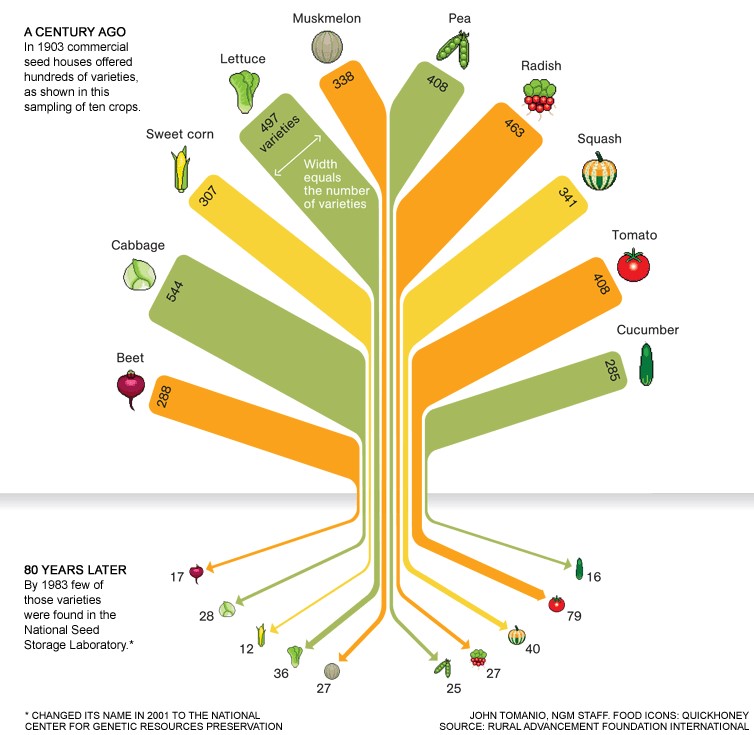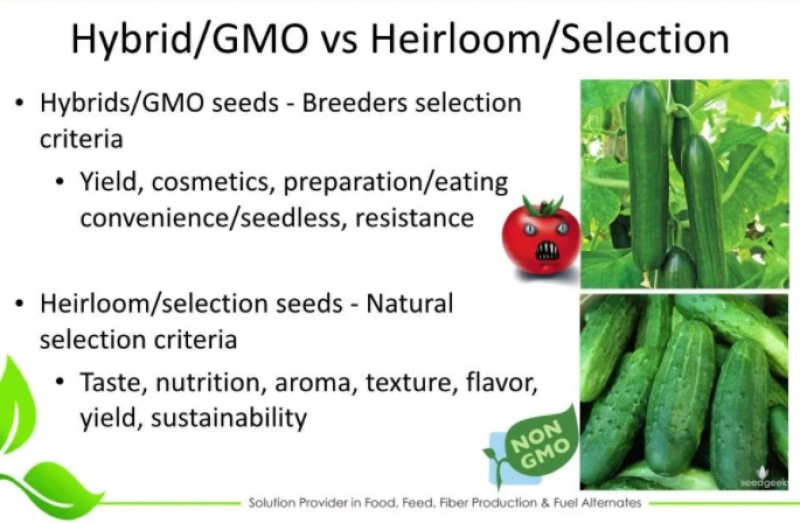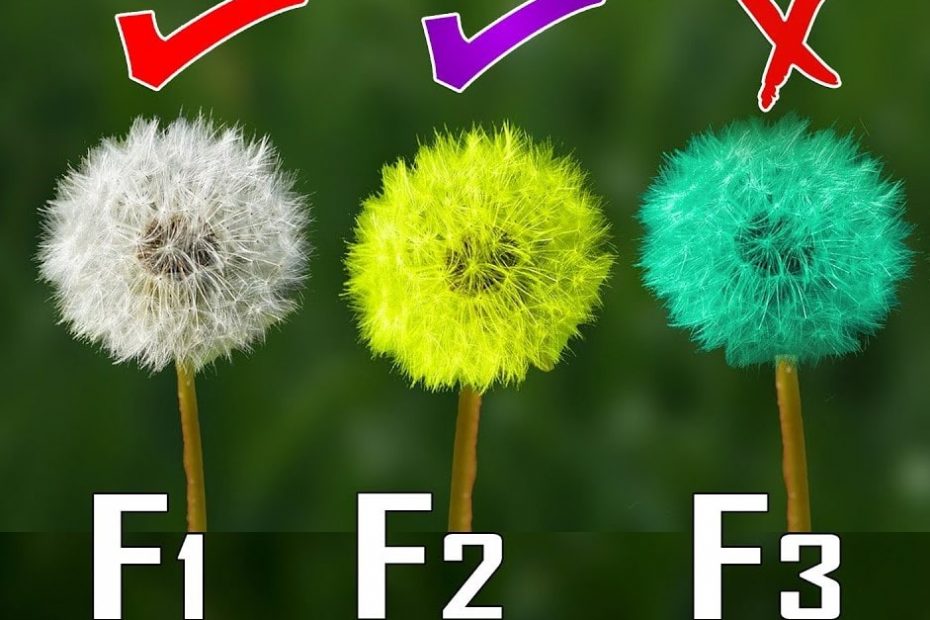The main difference between hybrids and heirlooms is that hybrids are a cross between two different varieties of the same species, while heirlooms are a variety of the same species that has been passed down from generation to generation.
What are Heirlooms?
If you are an active gardener I’m sure you’ve probably at least heard of the term “heirloom.” If you haven’t heard of it before, now you have. You may be wondering what heirloom plants are exactly and what is the big deal with them.
Heirloom simply means that they have been passed down. So for a gardener this means these are the same varieties that your grandmother and great-grandmother were probably planting in their gardens. Heirloom plants are those that are not hybridized or bred up. So why plant them you ask? Hybrids are suppose to be better right? This totally depends on what you are looking for in your garden. There are many heirloom plant varieties that are very unique compared to their common counterparts.

If you are in the farmers market business this could give you an edge on many of the other growers in your area by being able to offer your customers something different than they are used to seeing. Also, heirlooms are full of flavor! In some crop varieties plants have been bred up so much that all they do is produce. They lose their flavor and sometimes nutritional content in the process. Also, if you plan on saving your seeds heirloom plants are great! If pollinated with similar plants they should produce identically every year. However, if you have a great variety in your garden, you may get some of your own unique hybrids in this process. If you want to add diversity in your garden and get back to the basics planting a few heirloom varieties is a great way to go!
Heirloom Examples
- Turkish Orange Eggplant
- Romanesco Broccoli
- Rainbow Carrots
- Listada de Gandia Eggplant
- Lemon Cucumber
- Cicilian Violet Cauliflower
- Burbank Tomato
- Armenian Tomato
What are Hybrids?
Now that you know what heirlooms are you may wonder what are hybrids? Hybrids are pretty much the exact opposite. Hybridization occurs with cross pollination of two similar plant species. The resulting plant is a combination of both of them. To fully understand this process you would probably have to take several genetics classes. Essentially the resulting plants have combined benefits of both of the parent plants. This is very useful in breeding for disease resistance/tolerance, size of fruit and plant, growth, vigor, and hardiness. These are only a few attributes that can be bred for. When you are talking about flowers color can also be a major factor for plant breeders. Now I want to be very clear on the difference between GMO’s and hybridization.

Please understand that these are two completely different scenarios, but can be intertwined and misunderstood. GMO plants stand for “genetically modified organism.” The actual genetic makeup of these plant varieties has actually been altered to express a desired gene. Often times this is foreign and derived from bacteria. This practice is commonly used in the agricultural industry for creating crops that are pest resistant. Although, there is much debate right now on the health affects of these plants. Hybridization is simply the process of breeding two different plants together, and then selecting the desired result. Again, this is a very simplified explanation. Do not save these seeds, often times they are not open pollinated and WILL NOT produce the same plant as the parent. If you are in a certain region hybrid plants may do very well and outperform the heirloom counterparts.
Which is Better?
I don’t believe there is a right or wrong answer to this question. You need to take your needs and the environmental factors into consideration when deciding what plants that are going to go in your green garden.
Usually I like to stick with the proven winners that always do well for me. I will then try and few new varieties every year. You can then have both a diversified and sustainable garden throughout the growing season and every year.
